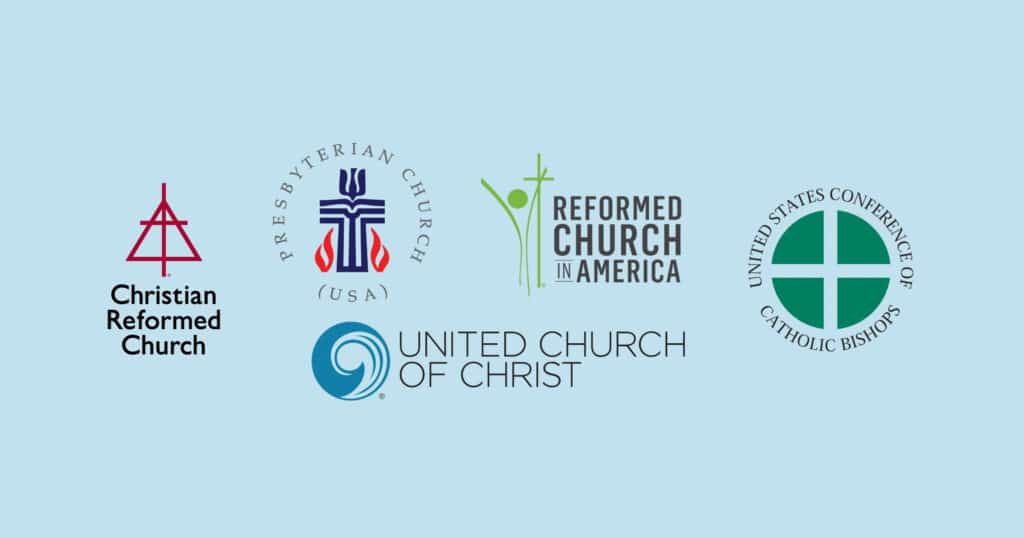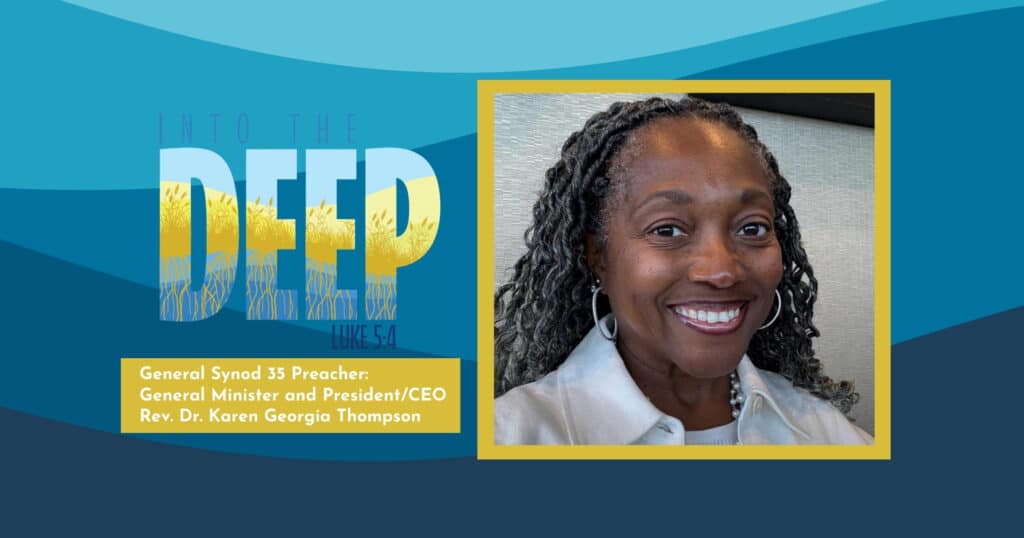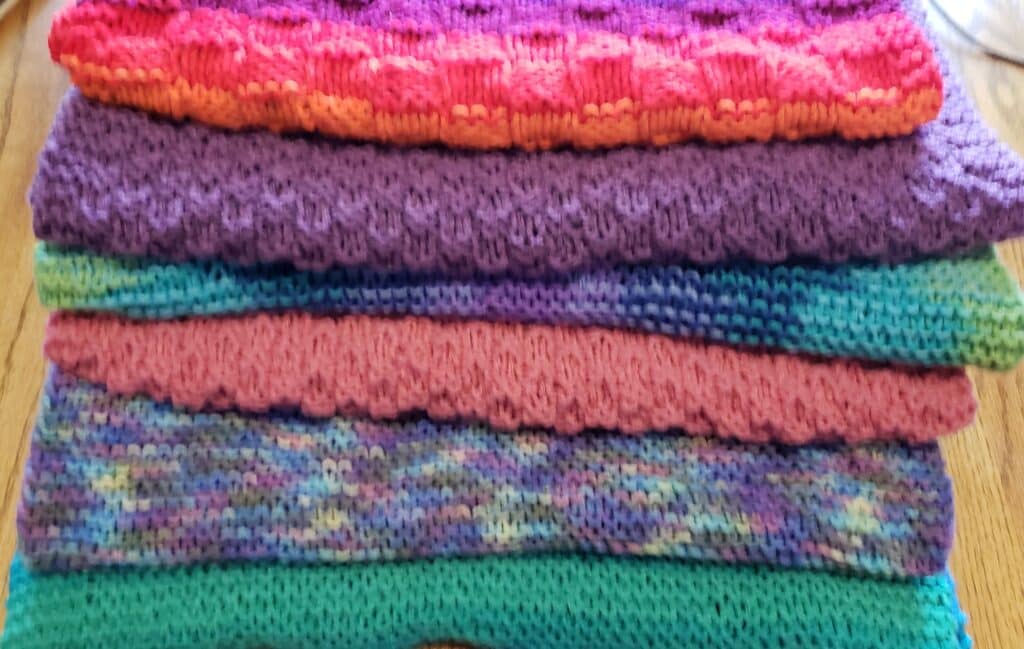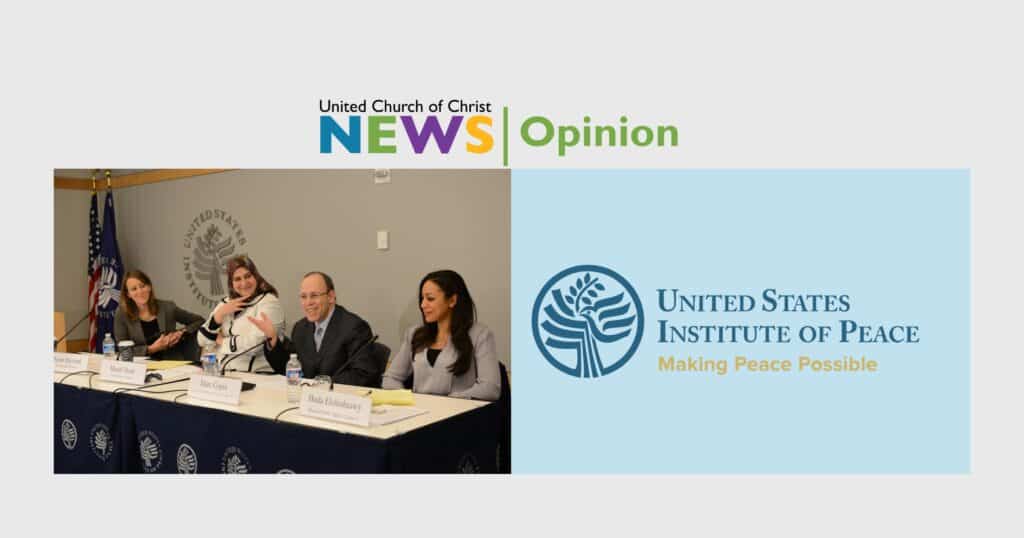Next round of dialogue with Catholics, including justice as topic, starts in June
The unity Jesus prayed for in John 17:21, “that they may all be one,” has turned out to be a long-term project, involving lots of dialogue.
For the United Church of Christ, which sees that prayer as its founding motto, the next round of those talks will start June 5-7.
That’s when representatives of U.S. Reformed churches will kick off the next in a series of dialogues with their Catholic counterparts. This round will include a topic familiar to many members of the “just world for all” UCC: justice.
The four Reformed participants share roots in a particular branch of the 16th-century Reformation. They are the UCC, the Christian Reformed Church, the Presbyterian Church (U.S.A.) and the Reformed Church in America. Each will send three representatives. Their dialogue partners will be six representatives appointed by the U.S. Conference of Catholic Bishops.
How dialogue works
“This is the ninth round of dialogue since Vatican II,” said the Rev. Mark Pettis, the UCC’s ecumenical and interfaith relations manager. Vatican II — the Roman Catholic Church’s Second Vatican Council — revised that church’s official practices in many areas. One result was a new openness to dialogue with other denominations.
In the case of U.S. Catholic-Reformed dialogue, each round typically takes five to seven years, Pettis said. This involves a series of in-person meetings to discuss the chosen topic. Between meetings, the dialogue partners break into cross-denominational teams to delve into issues that emerge. They discuss and write about those issues and bring them back to the entire group. Eventually, a final, formal, common report is the result.
At each gathering, conversations take place in plenary. But there is also time for Catholic and Reformed participants to caucus separately. There are even breakouts for each of the four Reformed denominations, which have their own similarities and differences. For the UCC delegation, Pettis said, “part of our responsibility is to bring forward our interpretation of how the UCC lives out Reformed theology.”

The coming round was to have started by 2020, but the COVID-19 pandemic delayed it until now. The parties will meet in person at the Chicago offices of the Evangelical Lutheran Church in America. (The ELCA is, by the way, a full-communion partner of the UCC but is not part of this dialogue. It participates in a separate Lutheran-Catholic dialogue.)
Pettis will be one of three UCC representatives at the talks. Joining him will be the Revs. Stephen Ray Jr., retired president of Chicago Theological Seminary, and Barbara Blodgett, associate dean of Pittsburgh Theological Seminary. They are successors to the last round’s UCC delegation: the Revs. Karen Georgia Thompson, Sidney Fowler and Randi Walker.
What they’ll talk about
The dialogues do not shy away from topics that have, over centuries, been points of tension among various branches of Christianity.
Recent past rounds have touched on such themes as:
- Baptism. A 142-page report in 2007 included a “common agreement” on that sacrament. It encouraged all partners to recognize each other’s baptisms and described practices that would make that possible.
- Eucharist / the Lord’s Supper. A 63-page report in 2010 said the dialogue had increased understanding between Catholic and Reformed. But it admitted, with “pain,” that “because visible unity does not exist we are not yet at the point where we can participate fully in this sacrament together.” It also prayed that the two would grow in “deeper communion” with Christ “and therefore in deeper communion with each other until that day when we can share in full communion around your table.”
- Ministry. An 86-page report in 2017 named ministry as “shared by the whole people of God.” As for ordained and other specially authorized ministers, it discussed a wide range of commonalities and differences on such subjects as ordination rites, whether ordination is a sacrament, and the ordination of women.
This time, “Justification and Justice” will be the topic. It has deep biblical roots. To take just two examples, it can be found in the Hebrew prophets (“let justice roll down like waters,” Amos 5:24) and the Christian epistles (people are “justified” by God’s grace “as a gift, through the redemption that is in Christ Jesus,” Romans 3:23-24).
Pettis said the dialogue will both flow from past topics and connect with them — asking, for example, “How do the conversations we’ve had work with our understanding of our call to seek justice?”
Modeling honest dialogue
Talking about agreements and differences — and giving those conversations the time and grace they need — is itself a much-needed model in today’s world, Pettis said. Each round takes so long because many issues are “not so cut-and-dried.”
“What I find intriguing about a dialogue like this is that whatever report we come up with will articulate the areas where we find agreement,” he said. “There will also be, I suspect, an acknowledgement of the areas where we don’t have agreement. The fact that we can do that is meaningful in itself, especially in a culture where that rarely happens.”
And while the dialogues dig deeply into the Bible, theology and history, they also have practical implications for ordinary Christians. Past reports have answered questions like: Why might another church offer you the sacrament of Communion, or why not? Why might a visitor feel comfortable receiving it in your church, or why not? What language spoken during a baptism is likely to be recognized by other churches? Why keep baptismal records in a local church?
Indeed, national church officials hope that neighbors in local communities will talk, too. “The best ecumenism always happens on the local level,” said the 2010 document on the Eucharist. “While it is good and necessary for religious leaders and theologians to meet in dialogue to discuss matters essential to the recovery of Christian unity, no amount of discussion or dialogue will have lasting impact if the insights, knowledge, and understanding gained therein do not find their way in to the everyday lives of Reformed and Roman Catholic Christians.”
The reason for the Catholic-Reformed dialogue — and others like it — is to “demonstrate movement toward unity in the body of Christ,” Pettis said. And it matters to the UCC, he said, “because this is our goal. As a denomination born in the movement toward Christian unity back in the middle of the 20th century, it is deeply within us to be in these conversations.”
Content on ucc.org is copyrighted by the National Setting of the United Church of Christ and may be only shared according to the guidelines outlined here.
Related News
Thompson to bring a ‘prophetic and pastoral’ message to Synod: ‘We are not all the same, but still one body’
On Sunday, July 13, the Rev. Dr. Karen Georgia Thompson will take the stage at the 35th...
Read MoreSend a prayer shawl along to General Synod 35
There’s been a buzz about Missouri, Kansas – can you hear it? It’s more of a clicking...
Read MoreOpinion: UCC pastor and former Institute of Peace Staffer calls for action in defense of peace
Editor’s Note: The United States Institute of Peace (USIP), an independent institute founded...
Read More



